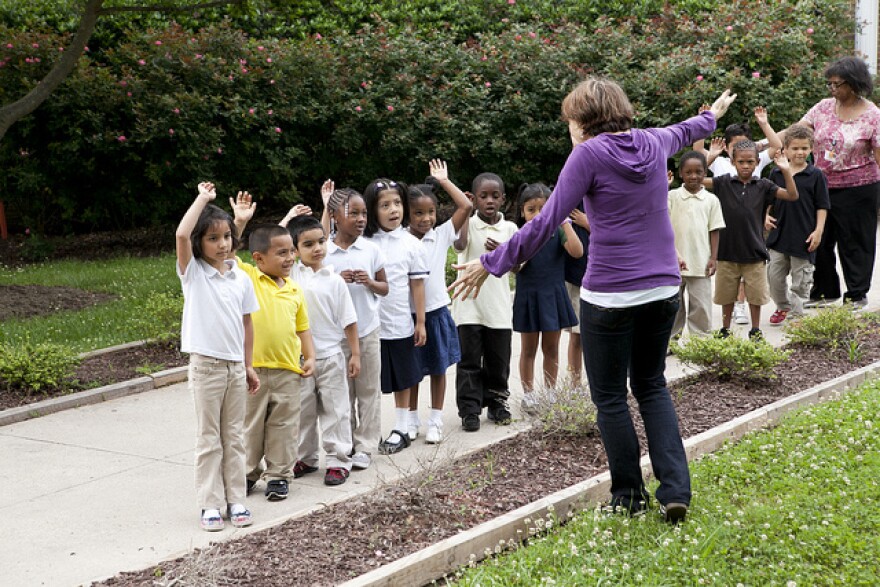During the last several years, you may have heard the phrase "School-to-Prison Pipeline" pop up in conversation. It will often be used in discussions regarding the "Zero Tolerance Policy" and armed resource officers in schools. What the school-to-prison pipeline refers to is a number of policies and practices in place that push children from schools into the criminal justice system.
On the State of Things, we present a roundtable with local experts and advocates for education justice to discuss how the pipeline works and alternatives to the pipeline. Frank Stasio talks with Mike Anderson, the executive director of Polished Souls; Tryone Tapp, a participant and youth ambassador to Polished Souls; Jason Langberg, an attorney for Legal Aid for North Carolina's Children's Advocacy Service; Rukiya Dillahunt, a retired educator from Wake County schools and a student and parent advocate for Education Justice; and David Reese, executive director of East Durham Children's Initiative.This segment is part of the American Graduate Project.


